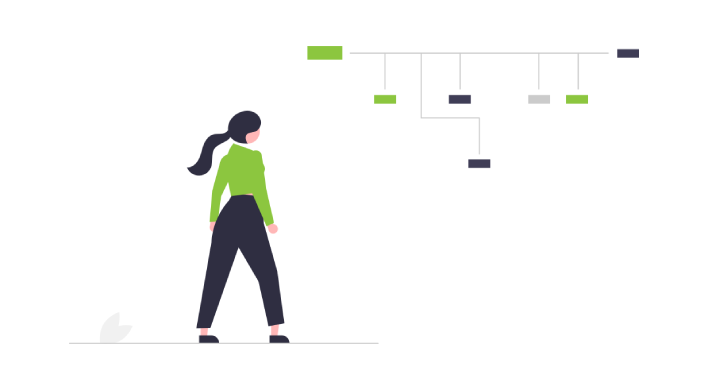How to Publish Research Papers
Publishing research papers is a vital step for academics, scientists, and professionals seeking to share their findings with the world. It not only establishes credibility but also contributes to the advancement of knowledge within a specific field. However, the process can seem daunting, especially for first-time researchers. This comprehensive guide will walk you through how to publish research papers effectively, from ideation to post-publication promotion.
Why Publish Research Papers?
Publishing research papers serves multiple purposes:
- Advancing Knowledge: It allows you to share your findings with the academic and professional community.
- Building Credibility: Published work adds weight to your academic or professional profile.
- Fostering Collaboration: Your research can inspire others to build upon your work.
- Career Progression: It can lead to better job prospects, promotions, and grants.
Understanding the benefits of publishing motivates researchers to aim for high-quality, impactful papers.
Step 1: Choose the Right Topic
The foundation of a successful research paper is selecting a relevant and original topic. Here’s how to decide:
- Identify Gaps: Look for unanswered questions or areas that lack sufficient research in your field.
- Personal Interest: Pick a topic you are passionate about to sustain motivation throughout the process.
- Relevance: Ensure the topic aligns with current trends or pressing issues in your discipline.
Step 2: Conduct Thorough Research
Once your topic is finalized, dive deep into research. Follow these steps:
- Review Literature: Study existing papers to understand your field’s research state.
- Collect Data: Use reliable sources, such as academic journals, books, and reputable websites.
- Organize Notes: Keep your findings well-documented to save time during the writing phase.
Step 3: Write a Strong Manuscript
A well-written manuscript is essential for publication. Follow these guidelines:
Structure Your Paper
- Title: Create a concise and impactful title.
- Abstract: Summarize your research in 150-250 words.
- Introduction: Set the context, explain the problem, and state your objectives.
- Methods: Describe your research methodology in detail.
- Results: Present your findings clearly, using graphs or tables if necessary.
- Discussion: Interpret the results and highlight their significance.
- Conclusion: Summarize key points and suggest future research directions.
- References: Cite all sources accurately in the required format (APA, MLA, etc.).
Step 4: Choose the Right Journal
Selecting an appropriate journal increases the likelihood of acceptance. Consider the following:
- Scope: Ensure your paper aligns with the journal’s focus.
- Impact Factor: Aim for journals with high impact factors to reach a broader audience.
- Peer Review Process: Opt for rigorous peer-review journals to enhance your paper’s quality.
- Open Access vs. Subscription-Based: Decide whether you want your paper accessible to all or limited to subscribers.
Step 5: Follow Submission Guidelines
Every journal has specific submission guidelines. Adhering to them is crucial. Pay attention to:
- Formatting Requirements: Use the journal’s prescribed template.
- Word Count: Stay within the limit.
- Supplementary Materials: Include figures, tables, or additional data as required.
- Cover Letter: Write a compelling cover letter summarizing your research and explaining its relevance to the journal.
Step 6: Navigate the Peer Review Process
The peer review process evaluates the quality and validity of your research. Be prepared for:
- Initial Screening: The editor checks if your paper meets the journal’s standards.
- Feedback: Reviewers may suggest revisions or additional experiments.
- Resubmission: Address all comments thoroughly and resubmit your paper.
- Acceptance or Rejection: If rejected, consider the feedback, revise it, and submit it to another journal.
Step 7: Post-Publication Promotion
Once published, amplify the reach of your research:
- Share on social media: Use platforms like LinkedIn and Twitter to announce your publication.
- Academic Networks: Share your work on ResearchGate or Academia.edu.
- Present at Conferences: Highlight your findings to a broader audience.
- Collaborate: Engage with peers who show interest in your work.
Common Challenges and How to Overcome Them
1. Writer’s Block
- Break the work into smaller sections.
- Set daily writing goals.
- Use brainstorming techniques to generate ideas.
2. Rejection
- Understand that rejections are common.
- Revise your paper based on feedback.
- Seek guidance from mentors or colleagues.
3. Time Management
- Create a realistic timeline.
- Dedicate specific hours each week to writing and research.
- Avoid multitasking during your writing sessions.
Publishing research papers is a rewarding yet challenging process. You can successfully navigate this journey by selecting the right topic, conducting thorough research, adhering to journal guidelines, and effectively promoting your work. Remember, persistence and continuous learning are key to overcoming obstacles. Start your publishing journey today, and contribute meaningfully to your field’s body of knowledge.
Reach out to us at www.saairatechnologies.com or give us a call at 7604897174 if you need assistance with the PhD Assistance.
Our strengths
Guarantee of Service
PhD in Creativity
At Saaira Technologies, our mission is to provide a level of service unparalleled by any other organization. We take immense pride in our team of highly skilled and experienced pro-writers. We are excited to declare that, at Saaira Technologies, we never compromise when it comes to quality. Our commitment to excellence sets us apart in the industry.
Assurance and Privacy
At Saaira Technologies, we guarantee that your research and personal information will be treated with utmost confidentiality. We are committed to maintaining strict privacy and ensuring that your data is securely handled for internal purposes only. Your trust is of paramount importance to us, and we take every measure to safeguard your information.
24/7 Service Assistant
At Saaira Technologies, our team of experts is readily available round the clock on Facebook, WhatsApp, and Email, ensuring uninterrupted support and assistance. We operate 24 hours a day, 7 days a week, allowing clients to conveniently connect with us at any time. Your satisfaction is our priority, and we are committed to providing timely and reliable service.
Why choose us?
PhD help technical experts are very friendly and always ready to hear from you. Our experts are available at any stage of your PhD work.
The project you submit to us will be a hidden treasure and it will be confidential and maintained very secretly.
PhD help projects are always cost effective but we assure you that this will not affect the quality of your work.
PhD help developers are well experienced and professionals in their particular field. They are very eager and always on duty. They are readily available to help you in any situation and time. Our experts are available on the shop floor always ready to help you at any point of your PhD you are stuck.
Teams of Saaira Technologies
Business Development Executives


Data Scientist
Language Editing Division


Department of Journal Publications
What Sets Us Apart from The Competition?

